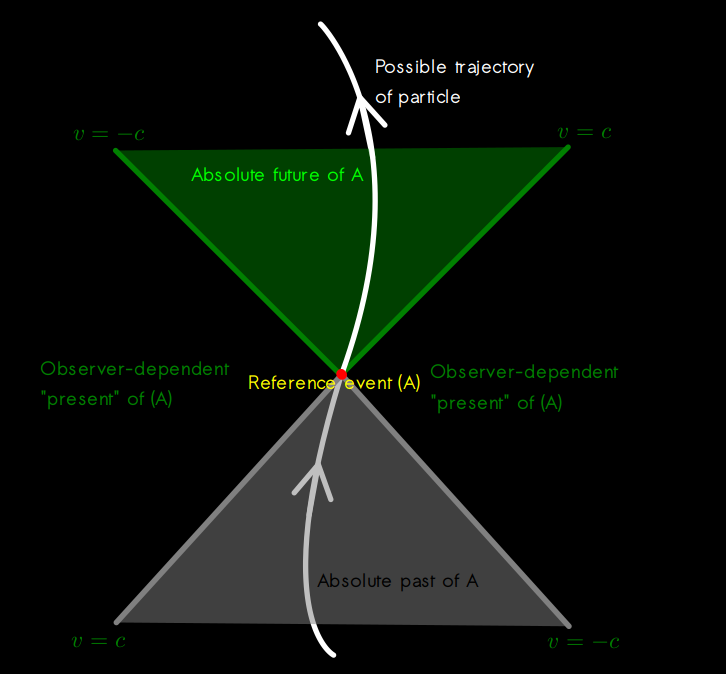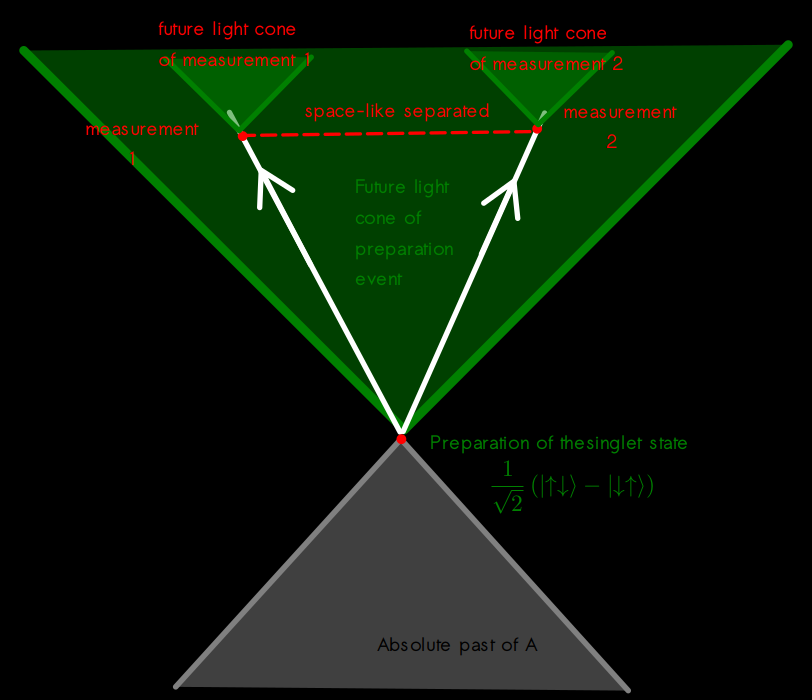Leaderboard
Popular Content
Showing content with the highest reputation on 11/11/22 in all areas
-
1 point
-
These are the ones who scare me. The ones who say something like "If he pushes me I have the right to shoot him. It is self defense." And too many of our laws support that kind of response.1 point
-
I did not take it as such, I should also add that in the past in Germany most men were familiar with guns due to obligatory military service. It is more about the realm (where do guns belong) rathe than familiarity around guns. I think others have expressed it better already, but what I tried to get at is the overall attitude that a gun is needed just in case. Americans I talked to seem to equate calling the police to deal with things like a sign of weakness but also impracticality (which I get in rural regions- the distances are vastly different compared to much of Europe). But there is also a disconnect in terms of how folks think how they need to deal with crime. In most countries folks seem to overestimate criminality but the US is more likely to think that a shootout would be a viable option to address it. I.e. it is not only guns themselves (though they play a big part) but also the way folks think about threat (individualized vs communal actions, for example) and many other things. Americans seem to view Europeans as too trusting regarding their government, but also their community (hence the children comment) and this comes over as fearful in societies were you have (or had) a higher level of trust.1 point
-
A neutron decaying into a proton does not produce a photon; you get the neutron, proton, positron electron and neutrino antineutrino. Fusion reactions, though, can involve excited nuclei and nuclear de-excitations can produce photons. Also particle-antiparticle annihilations, as well as acceleration of charged particles, in addition to the electron (atomic) transition.1 point
-
koti has been banned since his return only showed that his desire was to post in bad faith and stir the pot.1 point
-
It's not even the inverse square law that's meaningful, but the inverse cube law of tidal effects. Take a body like Mars, It has a gravitational pull on you, but it also has one on Earth, and since both you and the center of the Earth are nearly the same distance from Mars(when compared to the distance to Mars), the acceleration experienced from that pull is almost equal, and it is only the slight difference that could have any effect on you. This is the tidal effect. These types of tidal forces fall off by the cube of the distance. Given the mass of Mars, and it distance at its closest to Earth, a 0.2 gram mass at a distance of 100 meters would exert a larger tidal force on you than Mars would.1 point
-
1 point
-
Americans, generally, have become over-familiar with weapons and have lost respect for them. They also don't seem to realize that every one of them is a potential mass murderer should the 'perfect storm' affect their lives. Most mass murderers in the US are not inherently criminal and don't look like one. People like Nicholas Cruz are sad people, not evil. imo. The distress in court that he didn't get the death penalty because a unanimous verdict was required and the resulting outrage... US laxity allowed that violent expression and I wouldn't put the blame all on him. People who support the right to bear arms without restrictions are enablers for people in crisis to carry out mass murders.1 point
-
No. Two photons parting away from each other will never meet. Also, light cones refer to events, not to particles. Read @Eise's comments above, if mine seem obscure to you. No, there's no "remarkable exception." Again, you ignored something I said later. I made a significant addition because I fell in the trap of your ambiguous language of referring to "a light cone" without specifying the generating event, which of course, is meaningless: Here's a drawing of a generic light cone, with a particle trajectory for the purposes of illustrating its role in general. And here's a drawing of the situation in the EPR experiment, with all the light cones that are relevant to it: So, as you can see, every event "carries" its own light cone. Measurement 1 is outside of measurement 2's light cone, and conversely, measurement 2 is outside of measurement 1's light cone; while both are well within the antecedent preparation of the quantum state's big whopping light cone. What's wrong is that, for space-like separated events, time ordering is ambiguous. So the thing that's "happening" before or after, as the case may be, has to be completely ineffectual (for all intents and purposes, just a re-definition of the wave function,) and only in your mind, really. Eise has just explained how the ordering is ambiguous. If it had any consequences --measurable ones, interactions, etc.-- it would be very bad for SR. It doesn't happen.1 point
-
“Making sense” isn’t a valid scientific argument, because it is relative to some specific observer’s subjective state of knowledge and understanding, both of which are objects present in - and generated by - the human mind, and thus do not necessarily correspond to objective reality. The human mind is often a pretty bad judge of such things. There are plenty of concepts that don’t “make sense” to many (or even most) people, yet they are still demonstrably in agreement with experiment and observation. Also, there are many things in today’s world that wouldn’t have made sense at all to the average person in - say - the year 1200, such as heavier-than-air flying machines, electricity, microbes, or TV, to name just a few. You would have been laughed out the door (or burned at the stake) had you tried to explain any of those things to people back then. So “making sense” is also a product of environment, time, and culture, never even to mention a specific sensory apparatus, the structure of the brain etc etc - and thus entirely useless as a measure of what kinds of belief about the world are justified, and which ones are not. As it stands, relativity of time (ie time dilation and relativity of simultaneity) is in agreement with experiment and observation to such an overwhelmingly high degree that one might as well consider it as “for granted” by now. As it happens, crucial aspects of the hardware belonging to the computer you are using to read this post just now - such as the chemical properties of platinum - are due to relativistic effects that rely on relativity of time being true. Another everyday example is the lead-acid battery in your car; without relativity, the voltage between that battery’s terminals would only be in the region of ~2V, rather than your 12V. This is because some of the electrons in heavier elements move at relativistic speeds, so such effects become important when it comes to the chemical properties of atoms. Thus, relativity isn’t just an abstract idea that has no bearing in our everyday world; it has measurable and observable consequences even in our human domain of experience.1 point
-
This shows you do not even understand what SR is about. The 'objects' in a space-time diagram are events, not physical objects of any kind, so not particles either. Important to note is that the measurements (that are events) both lie in (e.g. when using electrons) or on (when using photons) the future light cone of the event in which the entangled particles were created. Of course observers have no effect on the timing. But when the measurements (events!) are space-like separated, there will be observers who see Alice's measurement first, and others that see Bob's measurement first. So that would mean that the first observer must, according to you, send a FTL signal to Bob, but for another observer Bob must send a signal to Alice. But under relativity, all observers agree on what physically is happening. A signal going into one direction for one observer, and into the other direction for another observer, cannot be a physical signal. A none-physical signal is no signal at all. And this has nothing to do with: Observers can perfectly calculate the delay due to their distance of the measurements. And they still will observe that they see the measurements in a different timely order. Space-like separated events do not have a defined timely order, it depends on the observer. And don't forget: the inertial frame in which the entanglement source, and the measurement devices of Alice and Bob are standing still, is not a privileged frame. You really do not understand SR, and the relevance of it for understanding what the true impact of entanglement is.1 point
-
No, but I think you have picked up on that yourself already. The crucial feature of Minkowski spacetime is found in how it defines the separation between points. You might remember from your school days the Pythagorean theorem - if you have a pair of points in some Euclidean space, the squared separation between them is the sum of squares of coordinate differences: \[(\Delta s)^{2} =( \Delta x)^{2} +( \Delta y)^{2} +( \Delta z)^{2}\] In Minkowski spacetime, you have one additional dimension, being time - so the squared separation will involve four coordinates. However, unlike in Euclidean space, Minkowski spacetime does not simply add them; instead it ensures that time and space have opposite signs in the separation formula, like so: \[(\Delta s)^{2} =( \Delta t)^{2} - ( \Delta x)^{2} -( \Delta y)^{2} -( \Delta z)^{2}\] So the squared difference isn’t just the sum of (squared) spatial separations, but the difference between (squared) separation of time and space: (total separation)^2 = (separation in time)^2 - (separation in space)^2 Note that the choice of signs is arbitrary - I could have made time negative and space positive, without affecting the result. This is an example of hyperbolic geometry (as opposed to Euclidean geometry). What does this do physically? Well, having a difference rather than a sum enables you to make simultaneous changes to the space part and the time part in equal but opposite measure, without affecting the overall separation in any way. So you can trade a decrease in space for an increase in time (or vice versa), and still end up with the same overall separation. And that’s exactly what happens in Special Relativity - for example, if you are looking at a clock passing you by at relativistic speeds, you’ll find that the clock is time-dilated (meaning it takes longer for the clock’s hands to move, from your point of reference), while at the same time the clock itself will be length-contracted in its direction of motion, so its size becomes shorter (again, from your point of reference). So in this scenario, and from your point of reference, “space is traded for time”, in a manner of speaking. This happens in equal but opposite measures - the decrease in size is by the same factor as is the increase in time - which is why the ratio between them remains the same always, which physically means that the speed of light is always the same in any inertial frame. This is is purely a consequence of the hyperbolic geometry of Minkowski spacetime. A simple change in signs makes all the difference! The above is very simplified and not especially rigorous, but hopefully you get the central idea.1 point
-
1. It makes utterly no assumption about the existence of God. It is an argument completely and utterly ambivalent to the existence of a deity. 2. It relies entirely on observed data, not "made up premises". Things about humans you can measure. 3. It makes no assertion at to what so called "perfection" is. Simply makes the empirical observation that trait state is almost always a compromise between two extremes. Therefore by definition, not perfect. Compromised. Do you need a picture? Clearly you need a picture: See, long necky giraffes are better at fighting, therefore worser at drinking. Short necky giraffes are worser at fighting and better at drinking. Middle necky giraffes are ok but not best at both. ALL TRAIT STATES ARE COMPROMISED. THERE IS NO PERFECT TRAIT STATE. YOU DON'T NEED TO KNOW WHAT THE "PERFECT" GIRAFFE LOOKS LIKE TO DETERMINE THAT NO ONE NECKY GIRAFFE IS PERFECT. Sheesh.1 point
-
I think there's a semantic gap here in using the term fear. One can have a rational fear without being fearful. If a black neighbor of mine, who happens to be from St Louis, moves back to his old neighborhood there he plans to have a gun, on the basis @zapatos outlined. He's not fearful, but has solid intel that reports police service in that area is spotty, slow, and sometimes notably lacking in rapport with black people. And so he's doing what a rancher would do living on a range with multiple mountain lions and coyotes and a very distant sheriff. Few question the rancher's reasoned choice of protective tools, but anyone who buys a gun for urban protection their decision is often interrogated as if they might turn into Travis Bickle or they are at least questioned on their rationality and fearfulness. And I can see why the stakes of gun misuse are indeed higher in a crowded urban setting than in the middle of stixville. I think the problem for my neighbor, and many other Americans, is that we personally didn't create the world. We would love to get rid of all the guns, convert police into compassionate social workers and conflict resolvers, and take walks at midnight wherever our fancy took us. But not everyone is on that same page (how I envy the Japanese). If I were stuck, by circumstances, in a dangerous neighborhood, I might choose differently than I have, and arm myself. I would be sorry to do so, but at some point I might be asking why I should let myself be mugged or raped (if female) so that I can embody the ideals and virtues of gun-free life. Many people are not very fit, or large, or fast runners or adept in martial arts, so carrying that burden of moral purity is difficult for them.1 point
-
He needs to be gone. I'm afraid he's crossed over to some place that is no longer compatible with this site.1 point
-
PBS Frontline. Documenting the case for war crimes. Visceral feeling of what it’s like to be in the towns that were occupied and how the executions occurred. https://www.pbs.org/wgbh/frontline/documentary/putins-attack-on-ukraine-documenting-war-crimes/1 point
-
1 point
-
"You seem easily confused".. Someone gave an up-vote because of a humorous video that fits perfectly with this discussion with the OP.1 point
-
The selected discussion topics clearly indicate that you are not.. Is it OK for you to ask about quantum physics? Humility? Or you misspelled humanity? Humility depends on the context in which it is used. One prefers to survive, another wants to gain something, another has no self-esteem.1 point
-
There's also an Occam's razor take on the notion that precise planetary and solar positions at birth influence your life and character - isn't it more likely that your DNA and nurturing and environment would have more effect? Sure, there could be some early seasonal effect from being born into hot weather and lots of airborne pollen v being born in cold midwinter, that kind of thing. But isn't it more likely that I'm analytical because my parents were, rather than because I'm a Virgo and the sun was blasting me with analysis-loving telepathy beams? Which causal explanation requires the fewest outlandish assumptions? Astrology annoys me, not least because I feel its pseudoscience tug the way many of my generation did. It's so easy to talk yourself into people fitting their sign, cherry picking examples as you go. Here's a concrete example: are Scorpio and Sagittarius people athletic because of celestial influence or because they are born in late Fall and thus among the oldest children in a primary school grade? A Canadian study found the latter, which seemed to be a result of early school athletic programs favoring the older children in a grade level - at age eight, say, an age difference of even half a year makes a difference in size and strength and coordination. Coaches pick selectively, and begin a process of favoring the oldest kids in a classroom. Think about how many small differentials like that, among schoolroom peers, can add up over a few years, creating a birth-seasonal effect on child development.1 point
-
That's probably the most elegant shifting the burden of proof I've ever seen. Well done. I can't prove that every belief system is developed by humans any more than I can prove that none of the pigeons in New York City are robots, or that none of the "humans" in West Virginia are bigfoot. We've done a big circular dance to the logical fallacy where you demand that atheists prove God isn't real. To illustrate; Could you prove that there isn't a single mushroom in the world that a fairy doesn't sleep under? Does that mean the only logical premise is to accept the existence of fairies? Why or why not?0 points
-
1) Yes. introspection can lead to empathy for pretty much anyone. 2) No. I don't use circular reasoning to justify my belief system. I could in other circumstances if I chose to, sure. 3) See above.-1 points
-
By that reasoning, belief in Christianity/Islam/etc without thoroughly vetting all other possible religions would be logically flawed, right? Do you think the average Christian/Muslim/etc has a working understanding of Candomblé and Jainism? That said all belief systems contain flaws, including atheistic ones. As I alluded to the problem arises when one claims perfection and moral authority over everyone, despite its flaws.-1 points
-
Not necessarily. This using the same logic you and many others have used in this thread. Not at all. Now you are making an absolute statement. To make that kind of statement you have to have a model to dismiss all of them. So what's your model?-1 points
-
I don't see how that follows at all. What logic? I didn't dismiss anything. I simply stated that any system of belief is flawed. If I had to apply a "model" I'd point to two specific points: 1) All human belief systems are implemented by human minds, which are flawed, in the sense that cognition evolved for survival, not precision and there are well defined ways in which recollection and sensory processing by the human brain differ from reality. Any belief system held by a human is one derived from a sensory perception and recollection of reality that that deviates from objective measurement of reality. 2) Stochastic probability and chance. No belief system can accurately account for all possibilities in past, future and present reality. Therefore any belief system necessitates a degree of filling in the blanks. Projection and extrapolation of existing principles generally generates higher rates of error than interpolative deduction. Again, I didn't dismiss anything. Flawed belief systems (like models themselves) are still valuable, especially if one is aware of their limitations.-1 points
-
The same logic you used. How do you know for sure that all belief systems are merely created by human beings? That's a universal statement.-1 points
-
You repeated the same statement three times now without elaborating. It remains nonsensical to me. You'll have to elaborate as to how the two points are logically connected. Good thing I never made the statement then. If one was to claim that a belief system has a supernatural origin, then the burden of proof would lie on the one making that claim. Otherwise what's the suggestion, some religions were created by lizards?-1 points
-
I am referring to the above statement you made. So if that does not mean all human belief systems are made by humans, what do you actually mean. Sorry if I misunderstood you.-1 points
-
Are you saying there is a human belief system that was made by something other than humans?-1 points
-
You played your hand and I'm no longer engaging with you. Google Bertrand Russell if you find yourself ignorant of his philosophy. For those following along - this is a particularly tricky game of shifting the burden of proof - e.g. 1: "Some people believe in bigfoot, I personally don't" 2:"Please provide evidence that bigfoot doesn't exist" 1: "You're asking for me to prove a negative, that's a logical fallacy" 2: "You made the positive claim bigfoot doesn't exist. The burden of proof is on you to prove bigfoot doesn't exist." That's not how the burden of proof works. 1 is claiming a null state. 2 is then demanding proof of the null. If this were a hypothesis test, 1 demonstrates a result not supporting the test hypothesis. 2 is then demanding statistical proof of the null. That's not how a hypothesis test works - one tests the test state and either supports it or does not (refracting to the null). Nothing about this preposition provides support for the test state, nor that retaining the null state demands a burden of proof. E.g. Say I dropped a pencil and it fell to the ground. Demanding proof it didn't fly into the Sun is not a logically valid premise. If someone demands that it is, they are intellectually dishonest, and not worth engaging. As demonstrated.-1 points
-
None of this is relevant to me. This is all a strawman effort. I questioned you on your claim and your claim only. The burden of proof lies on the claimant, not on the questioner. It's absolutely simple. Have a great day.-1 points
-
From a textbook on the Philosophy of Religion written by a Professor of Philosophy.-1 points
-
Virtually all human traits are evolutionary trade-offs between two deleterious states, which are usually environmentally dependent e.g.; Higher birth weight increases infant survivability in environments with unpredictable resource allocation, but increases likelihood of mother/baby death during childbirth. Increased immune function decreases the likelihood of infectious disease, but also increases inflammation susceptibility and reduces growth rates. Twin births increase fecundity in high resource environments, but decrease fecundity in low resource environments. Adaptations for enhanced cognition in humans increases susceptibility to both autism and schizophrenia. Temporal trade-offs in resource allocation to reproduction and growth predispose humans to aging related disease and cancer later in life. etc and so on. Virtually every environment a population is adapting to is changing. This creates a lag between the present trait state and the present environment known as evolutionary mismatch e.g., The thrifty gene hypothesis and increased rates of obesity/diabetes in Western society. Sedentary lifestyles and osteoporosis. The hygiene hypothesis and increasing rates of autoimmune disease as microbial diversity in human environments is decreased. The smoke alarm hypothesis and the prevalence of phobias and anxiety. Ergo, in many intrinsic ways human bodies are a inherently compromised. Unless one is using a very unconventional definition of perfection, the human organism cannot be described as perfect.-1 points
-
I got it from a video on the internet as a fact, see: at 19:00 minutes into the video. Meds just block the bad voices, not good ones. I know she's not in my head I have traced her.-1 points
-
The Alien could have telepathic contact wit Bob. Telepathic contact is instantaneous for any distance. It should not follow that the Alien loses telepathic contact just because he/she climbed on his/her bike and pedaled away.-2 points















